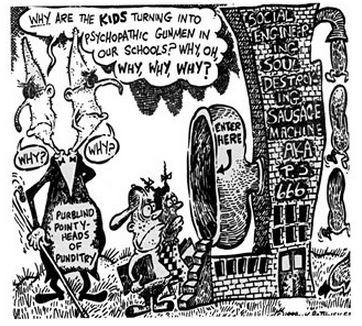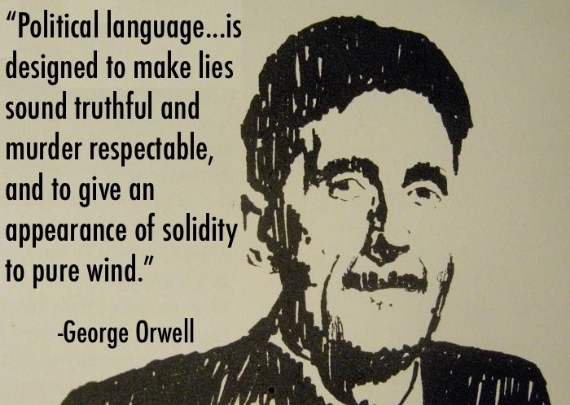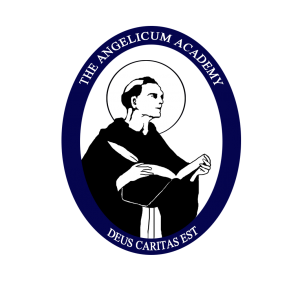
Dr. Curtis Hancock
TO TELL THE TRUTH: Talking Across the Disciplines
by Curtis L. Hancock
One of the scandals of modern academic bureaucracies is that knowledge, its nature and objects, is a subject educators are loathe to discuss. In fact, it is something of a taboo subject. When educators design curricula, their end-product seldom follows upon a thorough and satisfactory discussion about knowledge. Educators rationalize this evasion by suggesting that such a discussion is too arcane and “purely philosophical” to translate expediently into the practical business of educating students. Of course, such an evasion makes one suspicious. If educators will not justify that knowledge takes place, one wonders whether they are able, and if they cannot transmit knowledge to students, are they not educating under false pretenses? Isn’t that fraud rather than instruction? Many modern educators hope that this will go unnoticed. They usually succeed because the culture is so relativized that in the minds of the wider public the suspension of any convictions regarding knowledge is presumably a sign of enlightenment. “Knowledge” is another word for truth, and “truth” sounds suspiciously old-fashioned to modern ears. It suggests something authoritarian and undemocratic. “No one knows what is really true!” we hear it proclaimed. “Tolerance and freedom dictate that each person is free to find his or her own truth. Right?” “Everyone is entitled to his or her own opinion.” “No value judgments allowed!” Implicit in this call to “tolerance” is an intolerance of all truth claims, since truth is a value judgment. Never mind that the truth of these proclamations is allowed, in spite of the denial that there is truth. Oddly, the relativists are allowed their truth claims while the rest of us are denied ours. Perhaps that is something else we’re not supposed to notice.
 Regardless, educators often exploit this Orwellian state of affairs and use it to absolve themselves from providing a defensible rationale of their educational programs. This evasion cheats the students out of seeing how knowledge is integrated and how the disciplines can relate to one another. A singular advantage of homeschooling is that, because it resists the endless succession of pedagogical fashions that confound educational bureaucracies, and because it can escape the corrosions of relativism, it can develop curricula that rest on sound and enduring philosophies of knowledge. Once knowledge itself is defended, homeschooling can demonstrate that knowledge has many kinds (that there are many ways of knowing) and that it is possible to integrate student learning across the disciplines.
Regardless, educators often exploit this Orwellian state of affairs and use it to absolve themselves from providing a defensible rationale of their educational programs. This evasion cheats the students out of seeing how knowledge is integrated and how the disciplines can relate to one another. A singular advantage of homeschooling is that, because it resists the endless succession of pedagogical fashions that confound educational bureaucracies, and because it can escape the corrosions of relativism, it can develop curricula that rest on sound and enduring philosophies of knowledge. Once knowledge itself is defended, homeschooling can demonstrate that knowledge has many kinds (that there are many ways of knowing) and that it is possible to integrate student learning across the disciplines.
When pressed, mainstream educators–those working at large in both private and public school bureaucracies–will retreat somewhat from the extreme view that there is no knowledge of any kind and basement, who the family of educators is not supposed to talk about, at least not substantively.
I have always suspected that this evasion also has another motive: if there is no philosophy of knowledge put forward to justify curricula, then educators are not accountable for having failed to satisfy standards of knowledge.
The excuses and the evasions, however, actually camouflage the insinuation of implicit philosophies of knowledge that take root and eventually narrow and undermine the potential of students. There are assumptions about knowledge that always underlie curricula, or the lack thereof. It is important that educational reformers be aware of this. Such awareness enables them to diagnose deficiencies in fashionable educational curricula and to arm themselves against committing similar errors. Such awareness enables them to supply a sound philosophy of knowledge to insure that students integrate their knowledge and can discourse across the disciplines.
One of the more bemusing features of today’s educational establishment is that, while the protests are as shrill as ever that education is the remedy for modern ills, modern educators generally labor under so many distortions and errors about what knowledge is that they cannot insure that their students are really being educated at all. Actually, I may have spoken hastily. To say they have distorted conceptions of knowledge may be to credit them too much. It may be more accurate to say they have no views about knowledge at all, at least not explicit ones. It appears that educators generally ignore inquiring about the nature of knowledge altogether. There are reasons for this ignorance and evasion. What knowledge is must be an embarrassing question for modern educators. They have been swamped over recent generations by so many trends and fashions that they must face a daunting task sorting through all this competitive debris (or cacaphony) and separating out what rings true and what does not. Having searched for fashionable bromides rather than a sound philosophy of knowledge, they no longer know even how to launch such a discussion. In the wake of this, the nature of knowledge becomes a taboo subject.
 One suspects that education under such circumstances really becomes political indoctrination in disguise, for there is something Orwellian about an education that makes no commitments to knowledge or truth. A few years ago I witnessed a commencement speech by the valedictorian at a distinguished Ivy League university express her gratitude that during her four years at college no professor had the gall to tell her that something was true. It never dawned on her that her time and money were wasted if she invested in an “education” which communicated nothing true. Education comes from the Latin ex-ducere, meaning “to lead out of.” The classical presumption is that education leads one out of ignorance to knowledge. But if there is no truth conveyed, there is no knowledge and our valedictorian has been the victim of fraud. Of course, we know she was only joshing. You can bet that she was told all kinds of “truths,” during her four years at the university, especially the “truth” that there is no “truth,” as well as a litany of politically correct truisms, which the rest of her talk indicated she had imbibed enthusiastically.
One suspects that education under such circumstances really becomes political indoctrination in disguise, for there is something Orwellian about an education that makes no commitments to knowledge or truth. A few years ago I witnessed a commencement speech by the valedictorian at a distinguished Ivy League university express her gratitude that during her four years at college no professor had the gall to tell her that something was true. It never dawned on her that her time and money were wasted if she invested in an “education” which communicated nothing true. Education comes from the Latin ex-ducere, meaning “to lead out of.” The classical presumption is that education leads one out of ignorance to knowledge. But if there is no truth conveyed, there is no knowledge and our valedictorian has been the victim of fraud. Of course, we know she was only joshing. You can bet that she was told all kinds of “truths,” during her four years at the university, especially the “truth” that there is no “truth,” as well as a litany of politically correct truisms, which the rest of her talk indicated she had imbibed enthusiastically.
Such a sad event–demonstrating that even the best and the brightest can be duped by the pernicious relativism endemic in higher education today–takes place because educators are neither able nor willing to address the nature of knowledge and to explain its possibility. They assert it when it suits them–when they have a political agenda to sustain; they deny it when it is inconvenient–when someone wants to judge their educational programs as smokescreens for cultural and political indoctrination. For, after all, if knowledge is not about reality but is merely a construction of society, then he or she “knows” and “thinks correctly” when social authority authorizes it. That is why I said modern education gets sucked into an Orwellian vortex in the end.
Beware also the assumption that only science conveys knowledge. This is part of the Cartesian fallout. It is an effective device to marginalize the voice of religion from effective education. Religion is thereby reduced to mere poetry.
Thomas Aquinas believed the disciplines could talk to one another because they had a common objective truth. What they did was to look at the truth/reality from different perspectives. The disciplines to the extent they have truths complement each other; they do not contradict each other; truth is a unity. Knowledge signifies, if it is authentic, the mind’s grasp of reality of the uni-(one) verse. This is a key principle in education, because if one is to be educated, one must be able to integrate what one learns with what one already knows.

